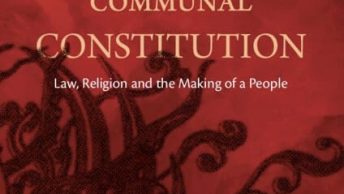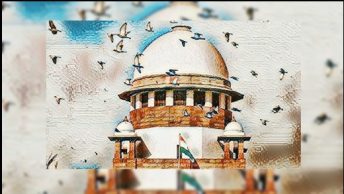The International Journal of Constitutional Law has just published its special issue on Asian law on its website. The entire issue is freely available for a limited time, and much of the content relates to India, including my article on directive principles as an accommodation tool. In a special blog post on the issue, ICON editors say:
Our focus on Asia begins with a scene-setting essay by Johannes Chan, Professor of Law at the University of Hong Kong, who discusses major constitutional issues in Hong Kong.
In our Articles section, Tarunabh Khaitan uses the Indian constitution-making process as a case study and suggests that constitutional directives may be a useful tool in deeply divided societies to accommodate the needs of ideological dissenters during constitutional negotiations. Melissa Crouch then provides a socio-legal examination of Myanmar’s Constitutional Tribunal. She identifies the internal factors that explain the operation of that court and reflects on its role as a forum for dialogue between military dictators and elected politicians. Finally, Michael Ramsden explores the status of socio-economic rights in Hong Kong through the possible implementation of the International Covenant on Social, Economic and Cultural Rights in Hong Kong’s constitutional law and administrative law.
The next section features a Symposium on “Constitutional Rights in South Asia.” The symposium includes articles that engage with different jurisdictions: India, Pakistan and Nepal. It opens with an introduction by Jamal Greene and Madhav Khosla. Raeesa Vakil then offers a critique of the Indian Supreme Court’s jurisprudence, which employs the administrative law principles of natural justice in judicial review cases involving constitutional rights. Moeen Cheema explores how Pakistan’s Supreme Court has expanded its institutional role and emphasizes its judicial review power in administrative law cases. Mara Malagodi argues that Nepal’s Supreme Court has developed a crucial role in advancing the rights of Nepali women. Finally, Deepa Das Acevedo offers an overview of the Indian Supreme Court’s jurisprudence regarding the issue of women’s entry to the Hindu temple at Sabarimala.
The Critical Review of Jurisprudence section offers two contributions. First, Jaclyn Neo uses religious freedom cases from Singapore and Malaysia to critically discuss how the definition of religion influences the scope of the constitutional protection of religious practices. Second, Yoomin Won examines how the Korean Constitutional Court used international human rights instruments in its decisions between 1988 and 2015.
We also include a special section entitled “The I·CONnect-Clough Center 2017 Global Review of Constitutional Law.” This section contains three reports that summarize the most relevant constitutional developments that have taken place in Malaysia, Pakistan and Thailand during the year 2017.
This issue closes with a special Book Review section focused exclusively on Asia.





Thanks for sharing. I read many of your blog posts, cool, your blog is very good.